
After Some Kids Started Fighting, Their Teacher Punished The Whole Grade, So This Girl Wrote The Teacher A Badass Letter
There’s a 12-year-old girl who’s probably gonna become a lawyer. In her first case, she’s comparing a common practice among teachers to war crimes, making some compelling arguments too. Everything started when Andrew Heiss’ daughter got punished together with the whole grade for a fight between a couple of kids. After doing some research, she voiced her concerns to her father. But the little girl didn’t stop there. She started sort of a resistance movement and is addressing the student council on Nov. 1. Something tells me she’s going there prepared.
More info: Twitter
Image credits: andrewheiss
Image credits: andrewheiss
Image credits: andrewheiss
Image credits: andrewheiss
Andrew’s daughter is probably talking about the Geneva Conventions, a series of international treaties established between 1864 and 1949. Specifically, the second protocol, Protocol II, which extended human rights protection to persons involved in severe civil conflicts. Collective punishment is prohibited for prisoners of war, and Article 33 in the fourth Convention says “no protected person may be punished for an offense he or she has not personally committed.”
People were impressed with the girl’s determination and wished her good luck in her quest
Image credits: edu_compassion
Image credits: devon_cantwell
Image credits: devon_cantwell
Image credits: mister_loudface
Image credits: Jermonter
Image credits: ashtroid22
Image credits: HayesBrown
Image credits: Victor_Asal
Image credits: Chrishenrichsen
Image credits: andrewheiss
Image credits: KateTytayna
Image credits: NatsMusicTeachr
Image credits: draymir
Image credits: rbmcphail
Image credits: Dianne_Khan
Image credits: stateofdnile
Image credits: legallybrnette
Image credits: pie_r_round
Collective punishment is supposed to promote compliance. And, just like other forms of punishment, it relies on the idea that the experience imposed by the teacher will be unpleasant enough to condition the students to change their behaviour in the future. Behaviourists first used this technique successfully animals in the 1960s. Behaviour modification strategies were then adopted by schools in various forms and are still used extensively today.
Some think collective punishment is effective due to peer pressure. It’s a common practice in sports and the military. However, there are critics who believe this strategy should be dropped. One of the main reasons, according to them, has to do with moral values. The idea a group should be responsible for the actions of the few is at odds with the theories of individual responsibility in western, liberal societies. There, each individual is in control of their own actions and must bear the consequences of those actions individually.
One person can change how we see the world. Amazing group of kids these days; so many examples of school age kids standing up for their beliefs and being heard. As an adults, are we as brave? What would you stand up for? Start local.
After the first few days of school, I was approached by a group of serious kindergartners. They asked me to beat up a third grade bully at the next bus stop. I explained violence wasn't the best answer, but promised to help. The next day I got on the bus and talked to the bus driver. She knew what to do. Big smiles on the bus. I was impressed. The kids worked as a group to solve a problem. No crying, just a sound plan. Which grown-up could help and what do we need --- no messing around. Clear and direct, using the power of a group. If the kids are punished as a group, who teaches them to act as a group? Adults tell me they don't know how to make a difference. Ask a kid.
Load More Replies...Collective punishments teach children three things, none of them any good. First, that the world is not fair (so why wait for someone to be unfair to you, go be unfair to them first!), second, that anyone in a position of power is free to misuse that power, and third, that if you are being unfairly trampled upon, there is nothing you can do about it! As a parent, I would have had a very serious discussion with the principal the moment I heard about this. It is outrageous. Kudos to the girl who is acting much more like a grown-up than her teacher. Maybe Greta Thunberg is liberating many closeted fighters for causes that are simply ... right!
I've never liked the idea of group punishments, for exactly the reasons you stated. School should be about teaching children knowledge and to think for themselves and how to behave in society, not mindless compliance.
Load More Replies...WHAT'S WORSE - I remember when one student was bullying another the teacher would tell both kids to knock it off, or stop.
It gets complicated so quickly. Often the parents are bullys, too. My ex stopped coaching because if he made any comment to the bullys, their parents were in his face. It got out of control so quickly. Armed police on the local soccer fields? Not sure what can be done.
Load More Replies...When I was in 7th or 8th grade, I got the flu and was home sick for several days. During that time, in English class, there was an exercise in reading aloud. Books were passed out to each student and they took turns reading a couple of paragraphs. Someone put a piece of chewing gum in one of the books. The next day it was discovered, and of course, nobody owned up to it. The whole class had to write a 500-word essay about why it was wrong to put gum in a book. The following day I was over the flu and returned to school. I was put in detention after school and was ordered to write the essay. Although the teacher acknowledged that there was no way I could have been the culprit, she explained that it wouldn't be fair to the other students if I wasn't compelled to write the essay. Well, it didn't seem fair to me.
When I was a kid, the collective punishments just encouraged us to all act up. We were gonna get punished anyway, why not do the crime if we had to do the time, so to speak?
She should conclude the letter with "Student protests will continue until teacher morale improves".
This proves kids can put in the effort......................... when they want to avoid punishment
Ok, at my place of work, it happened - one person made a mistake and ruined it for the rest of us. I'm NOT defending what happened at that school. I think that was wrong. I also think what happened at my workplace was wrong. But it does happen to adults too.
We as Zoomers (part of Generation Z) are underestimated in our intelligence.
A teacher pushed a student in class the other day and called him idiotic, my nephew and a few class mates reported the teacher, they all got put in to isolation the next day as punishment for making a report about the teacher.
Teachers also teach kids that it's ok to take from someone if they are in a position of the least bit of power. They take a child s property and never give it back.
As a middle school student, I see alot of this. My teachers will mostly use the "I can't tell who it is so the whole class is punished" sort of thing. It really kinda bugs me and it's mostly with older teachers. The ones that just don't want to deal with that c**p anymore. And I mean, I get it but still. That's like, half your job. The other half is teaching. You might be the best TEACHER but you're not the best PERSON. We have had class trips, party's, even our free period (which most kids use to get work done) taken away because like, three or four kids where doing something else. And what's worse? The teachers will decide who gets in trouble and who doesn't. If you're normally a good kid but have your phone out in class then the teacher might tell you to put it away but let it slide. But say, if you got in a fight yesterday they automatically assume you're a bad kid. B.
This happened to me once in high-school. A one-day-suspension to my whole class because some kids harassed a teacher from OUTSIDE THE CLASSROOM. By the way, I was one of the students that stayed with the teacher a few minutes after the incident to comfort her (she was an old lady and those mean kids pushed her very close to a nervous breakdown). Such undeserved suspension just confirmed my belief that teachers didn't really care about justice or teaching good behavior to students (before that, they never helped me when I was being bullied right in front of them).
This teacher shouldn't be teaching if she feels that the only way to punish a couple of students is to punish all students. My mother was a 3rd grade teacher and I can't see her punishing her whole class for a couple of students. Collective punishment only causes students to become resentful of the students who caused the problem and for still to start becoming tattlelers to avoid getting in trouble.
I remember having to put our heads down on our desks as a collective punishment in grammar school. This is the 1960's. Lights turned down, silence -- lowering the energy of the whole class. It worked!
Load More Replies...In a few years, she'll be one of those kids who complains about school not preparing them for life, and that 7-year-olds aren't encouraged to pursue their passion.
Many years ago in a small town a teacher chose to punish everybody because the school didn't renew her contract. She flunked the whole class so next year they had two fourth grades and no fifth, etc, until that class graduated out.
I posted a response on the tweet for her to compare this to North Korea's punishment system and that maybe the school show punish her grade AND the three grades below too just as good measure. You know... to make sure this doesn't happen in the future too bahaha I can't wait to see if she does it!! The teachers get accused of war crimes AND being like North Korea?!! Omg can you imagine their reactions?? I hope the dad gets to video and post how the student council meeting goes and the reaction. I hope he invites the local news' teams too!!!!
(Smiling) Technically she's wrong b/c the Geneva convention only applies to acts done by armies during wartime, and is irrelevant to what teachers do in a class. Her moral point against collective punishment still stands, though.
She never said it was illegal in schools. All she said was that it's immoral and used the Geneva Convention as an example. And the "(smiling)" thing doesn't make you seem friendly. It makes you sound condescending and creepy, although I don't think you were trying to be friendly anyway, you just wanted to seem smart.
Load More Replies...The teacher could be punishing the whole class for creating the environment though. Or not doing anything about the fighting.
Interesting, collective punishment is a pretty common thing in the military, at least for the rookies. Is this against the Geneva Convention then? I wonder if they know :P
Military punishment is a little different because of team building stuff. Everyone is supposed to be working as a collective. It's still a little weird, but that's the justification.
Load More Replies...No. It's a bad teacher thing. I'm fairly positive there are c**p teachers worldwide, not just in the US. But, good on you for bigotry! 👍🏻
Load More Replies...As a teen, yes. A lot of us do write essays. Don't pretend you know how everyone's mind works.
Load More Replies...One person can change how we see the world. Amazing group of kids these days; so many examples of school age kids standing up for their beliefs and being heard. As an adults, are we as brave? What would you stand up for? Start local.
After the first few days of school, I was approached by a group of serious kindergartners. They asked me to beat up a third grade bully at the next bus stop. I explained violence wasn't the best answer, but promised to help. The next day I got on the bus and talked to the bus driver. She knew what to do. Big smiles on the bus. I was impressed. The kids worked as a group to solve a problem. No crying, just a sound plan. Which grown-up could help and what do we need --- no messing around. Clear and direct, using the power of a group. If the kids are punished as a group, who teaches them to act as a group? Adults tell me they don't know how to make a difference. Ask a kid.
Load More Replies...Collective punishments teach children three things, none of them any good. First, that the world is not fair (so why wait for someone to be unfair to you, go be unfair to them first!), second, that anyone in a position of power is free to misuse that power, and third, that if you are being unfairly trampled upon, there is nothing you can do about it! As a parent, I would have had a very serious discussion with the principal the moment I heard about this. It is outrageous. Kudos to the girl who is acting much more like a grown-up than her teacher. Maybe Greta Thunberg is liberating many closeted fighters for causes that are simply ... right!
I've never liked the idea of group punishments, for exactly the reasons you stated. School should be about teaching children knowledge and to think for themselves and how to behave in society, not mindless compliance.
Load More Replies...WHAT'S WORSE - I remember when one student was bullying another the teacher would tell both kids to knock it off, or stop.
It gets complicated so quickly. Often the parents are bullys, too. My ex stopped coaching because if he made any comment to the bullys, their parents were in his face. It got out of control so quickly. Armed police on the local soccer fields? Not sure what can be done.
Load More Replies...When I was in 7th or 8th grade, I got the flu and was home sick for several days. During that time, in English class, there was an exercise in reading aloud. Books were passed out to each student and they took turns reading a couple of paragraphs. Someone put a piece of chewing gum in one of the books. The next day it was discovered, and of course, nobody owned up to it. The whole class had to write a 500-word essay about why it was wrong to put gum in a book. The following day I was over the flu and returned to school. I was put in detention after school and was ordered to write the essay. Although the teacher acknowledged that there was no way I could have been the culprit, she explained that it wouldn't be fair to the other students if I wasn't compelled to write the essay. Well, it didn't seem fair to me.
When I was a kid, the collective punishments just encouraged us to all act up. We were gonna get punished anyway, why not do the crime if we had to do the time, so to speak?
She should conclude the letter with "Student protests will continue until teacher morale improves".
This proves kids can put in the effort......................... when they want to avoid punishment
Ok, at my place of work, it happened - one person made a mistake and ruined it for the rest of us. I'm NOT defending what happened at that school. I think that was wrong. I also think what happened at my workplace was wrong. But it does happen to adults too.
We as Zoomers (part of Generation Z) are underestimated in our intelligence.
A teacher pushed a student in class the other day and called him idiotic, my nephew and a few class mates reported the teacher, they all got put in to isolation the next day as punishment for making a report about the teacher.
Teachers also teach kids that it's ok to take from someone if they are in a position of the least bit of power. They take a child s property and never give it back.
As a middle school student, I see alot of this. My teachers will mostly use the "I can't tell who it is so the whole class is punished" sort of thing. It really kinda bugs me and it's mostly with older teachers. The ones that just don't want to deal with that c**p anymore. And I mean, I get it but still. That's like, half your job. The other half is teaching. You might be the best TEACHER but you're not the best PERSON. We have had class trips, party's, even our free period (which most kids use to get work done) taken away because like, three or four kids where doing something else. And what's worse? The teachers will decide who gets in trouble and who doesn't. If you're normally a good kid but have your phone out in class then the teacher might tell you to put it away but let it slide. But say, if you got in a fight yesterday they automatically assume you're a bad kid. B.
This happened to me once in high-school. A one-day-suspension to my whole class because some kids harassed a teacher from OUTSIDE THE CLASSROOM. By the way, I was one of the students that stayed with the teacher a few minutes after the incident to comfort her (she was an old lady and those mean kids pushed her very close to a nervous breakdown). Such undeserved suspension just confirmed my belief that teachers didn't really care about justice or teaching good behavior to students (before that, they never helped me when I was being bullied right in front of them).
This teacher shouldn't be teaching if she feels that the only way to punish a couple of students is to punish all students. My mother was a 3rd grade teacher and I can't see her punishing her whole class for a couple of students. Collective punishment only causes students to become resentful of the students who caused the problem and for still to start becoming tattlelers to avoid getting in trouble.
I remember having to put our heads down on our desks as a collective punishment in grammar school. This is the 1960's. Lights turned down, silence -- lowering the energy of the whole class. It worked!
Load More Replies...In a few years, she'll be one of those kids who complains about school not preparing them for life, and that 7-year-olds aren't encouraged to pursue their passion.
Many years ago in a small town a teacher chose to punish everybody because the school didn't renew her contract. She flunked the whole class so next year they had two fourth grades and no fifth, etc, until that class graduated out.
I posted a response on the tweet for her to compare this to North Korea's punishment system and that maybe the school show punish her grade AND the three grades below too just as good measure. You know... to make sure this doesn't happen in the future too bahaha I can't wait to see if she does it!! The teachers get accused of war crimes AND being like North Korea?!! Omg can you imagine their reactions?? I hope the dad gets to video and post how the student council meeting goes and the reaction. I hope he invites the local news' teams too!!!!
(Smiling) Technically she's wrong b/c the Geneva convention only applies to acts done by armies during wartime, and is irrelevant to what teachers do in a class. Her moral point against collective punishment still stands, though.
She never said it was illegal in schools. All she said was that it's immoral and used the Geneva Convention as an example. And the "(smiling)" thing doesn't make you seem friendly. It makes you sound condescending and creepy, although I don't think you were trying to be friendly anyway, you just wanted to seem smart.
Load More Replies...The teacher could be punishing the whole class for creating the environment though. Or not doing anything about the fighting.
Interesting, collective punishment is a pretty common thing in the military, at least for the rookies. Is this against the Geneva Convention then? I wonder if they know :P
Military punishment is a little different because of team building stuff. Everyone is supposed to be working as a collective. It's still a little weird, but that's the justification.
Load More Replies...No. It's a bad teacher thing. I'm fairly positive there are c**p teachers worldwide, not just in the US. But, good on you for bigotry! 👍🏻
Load More Replies...As a teen, yes. A lot of us do write essays. Don't pretend you know how everyone's mind works.
Load More Replies...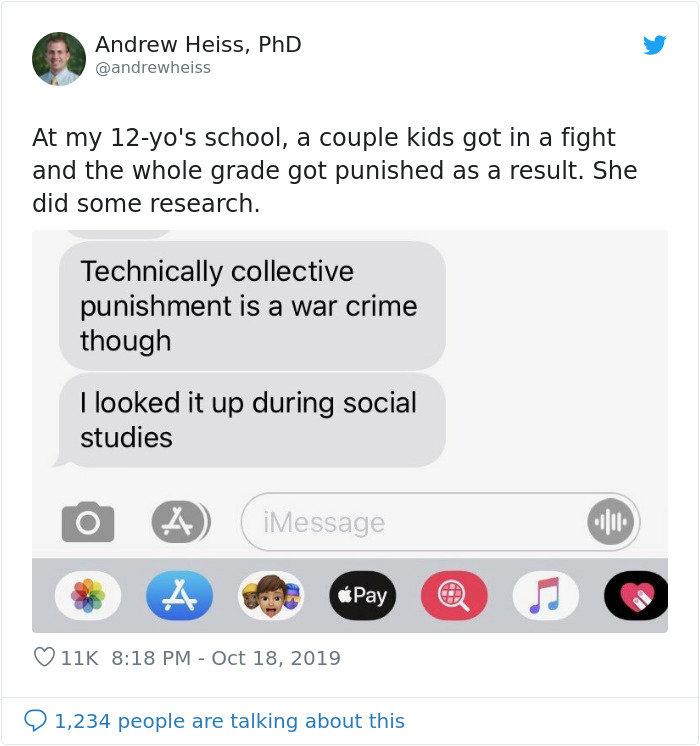
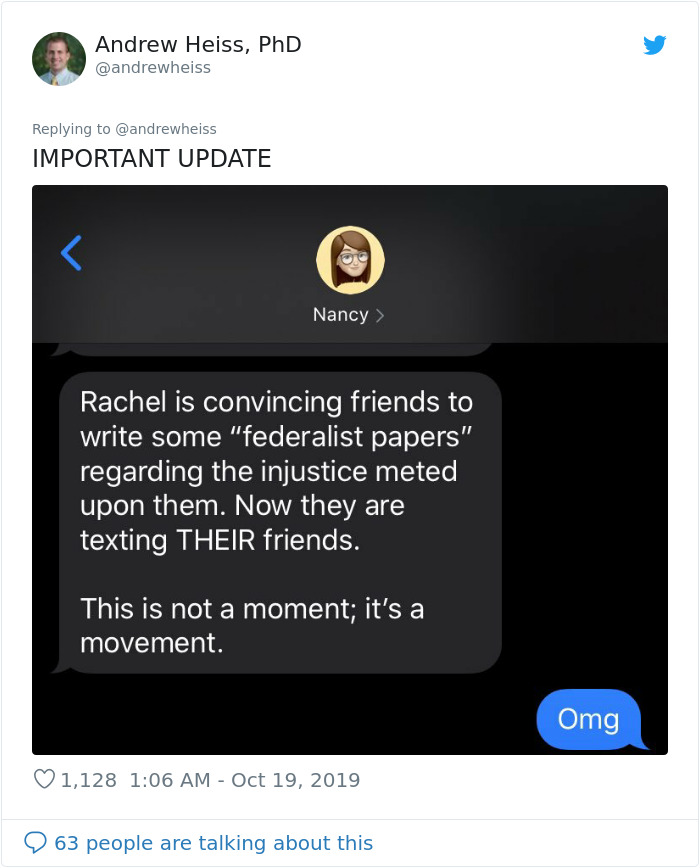
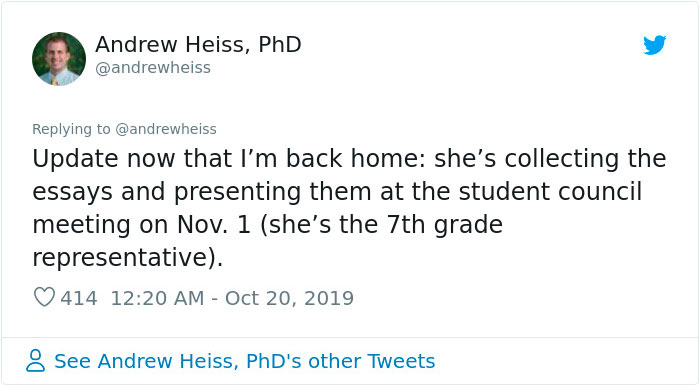
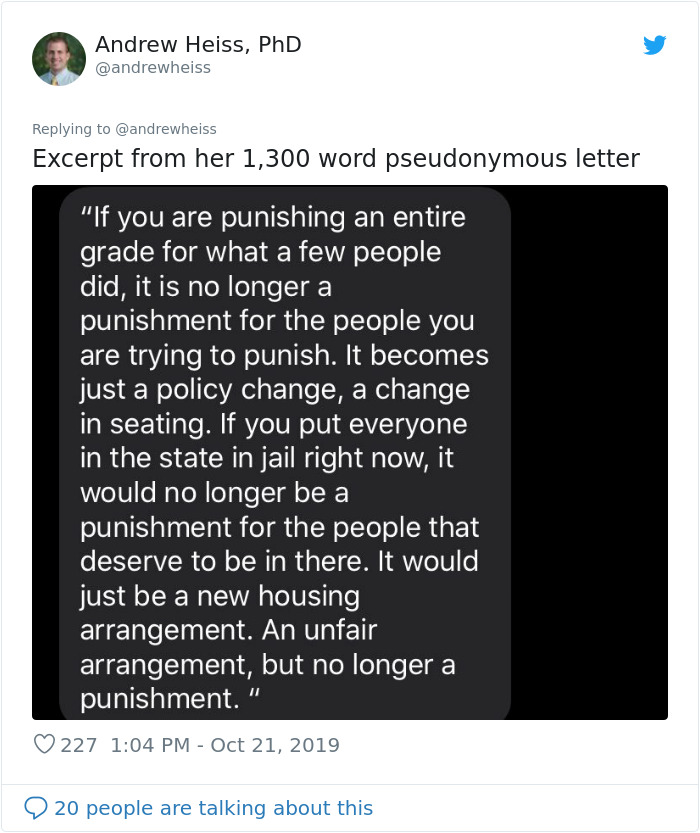
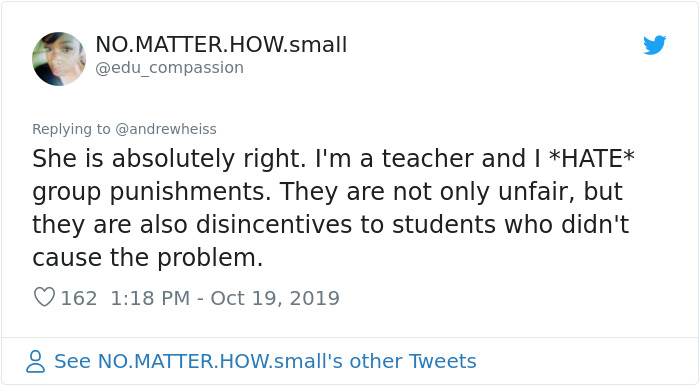
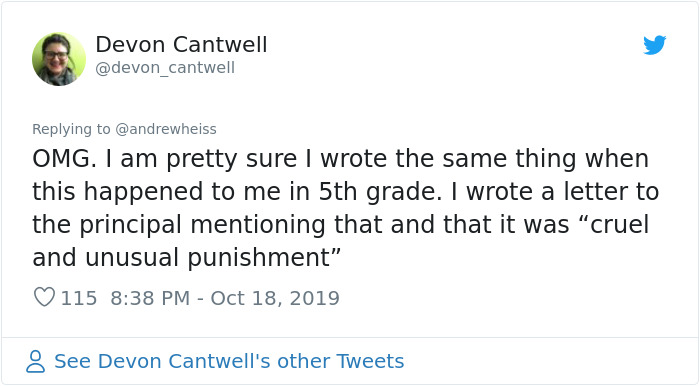
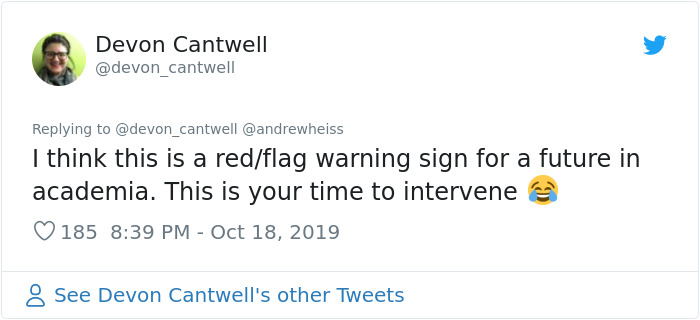
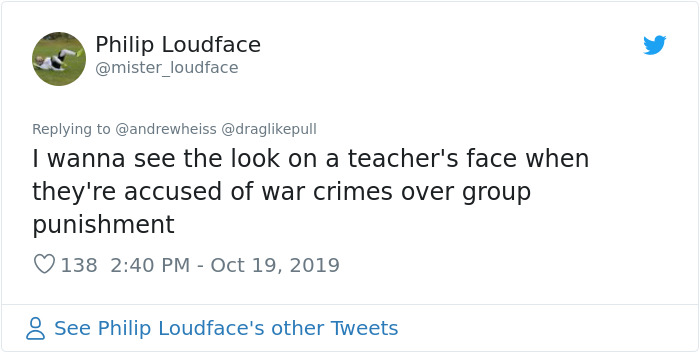
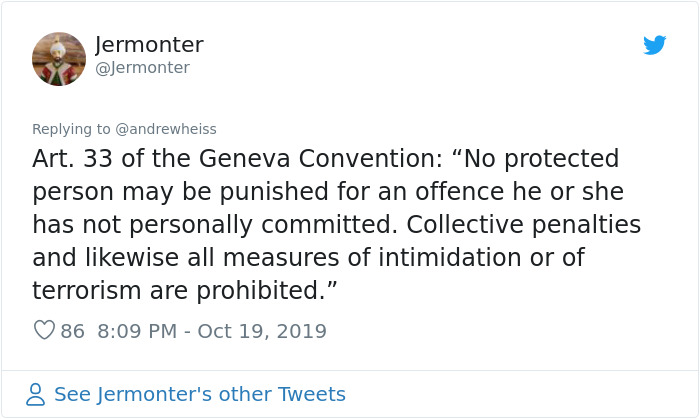
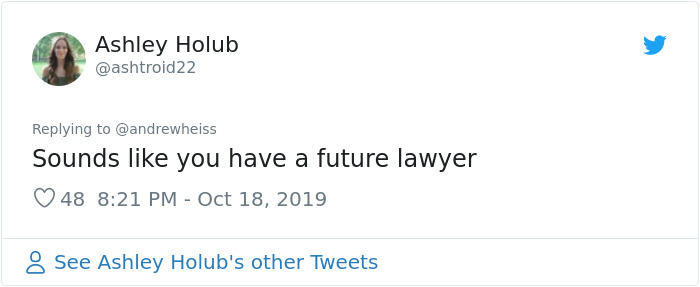
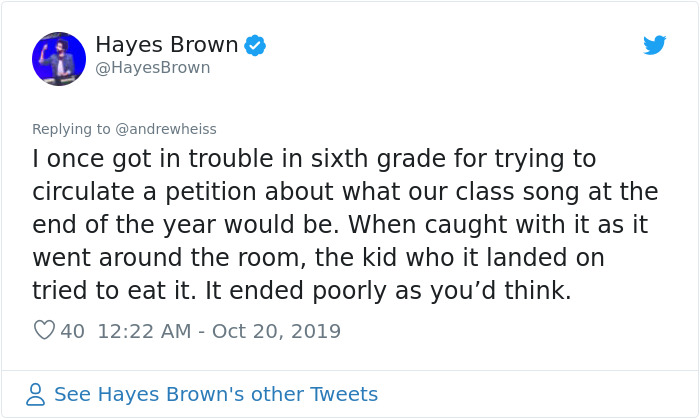
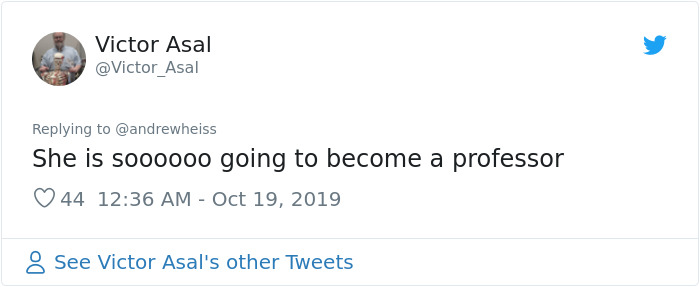

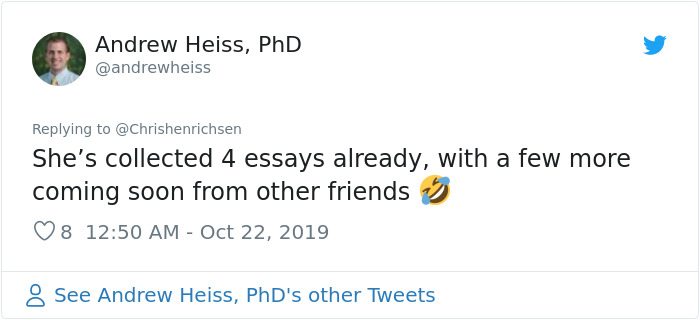
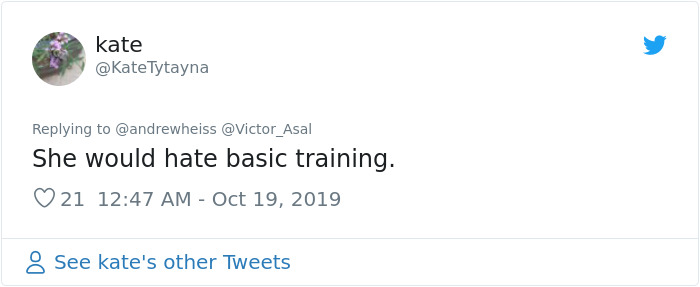
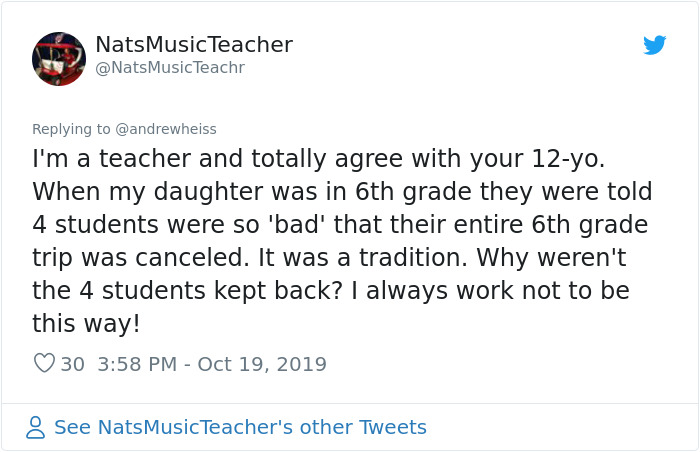
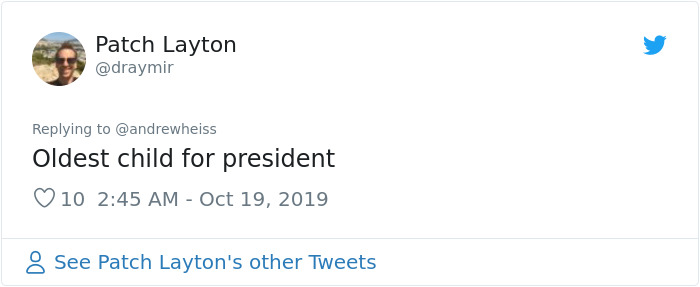
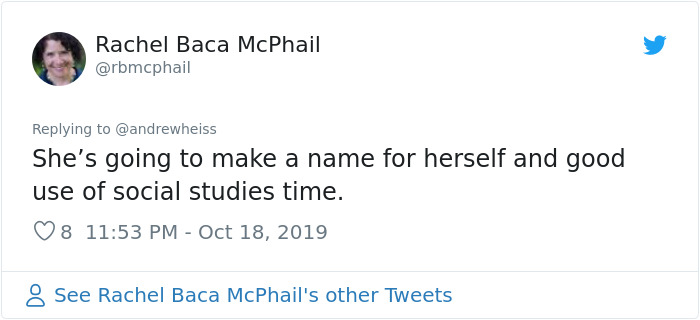
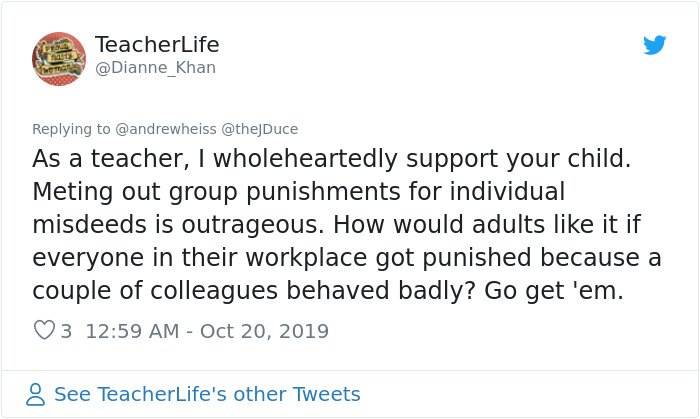
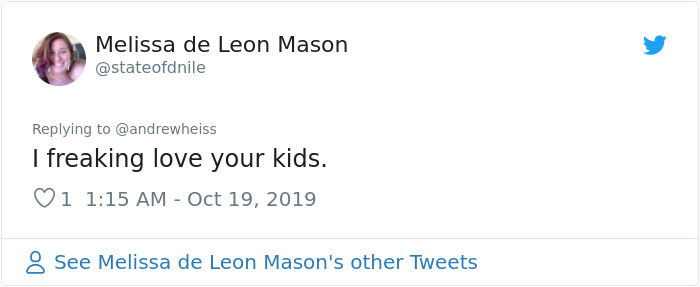
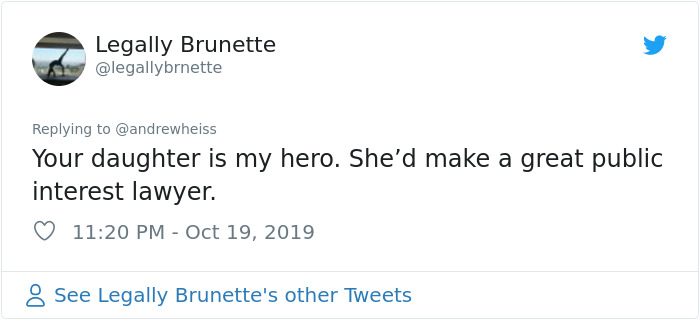





165
49